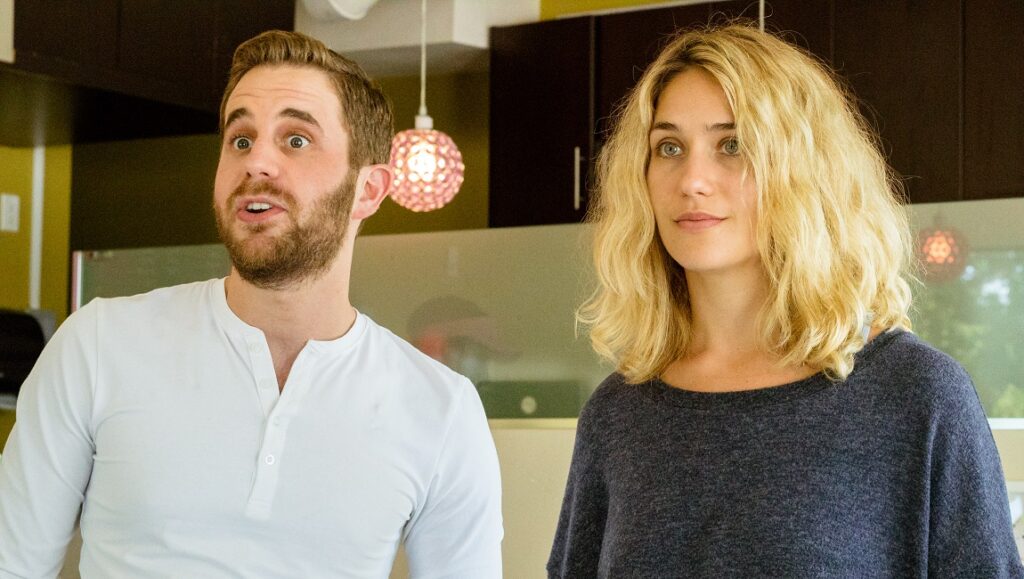Broken Diamonds at least steers clear of the offensive depictions that sink so many schizophrenia flicks, but it doesn’t rise much above this low bar.
The portrayal of schizophrenia in film is often problematic, to say the least, as the afflicted are often presented as either violent-prone and sadistic or kooky and misunderstood. When one of the more positive examples in the schizophrenia canon is Ron Howard’s A Beautiful Mind, a film which loosely treats disorder as a potential superpower and essentially implies that you can will away mental illness, then you know the competition is dire. Perhaps that low bar is why it’s rather difficult to be too hard on Broken Diamonds, director Peter Sattler’s well-intentioned film about the devastating effects schizophrenia can have on the family members who end up in its orbit. Writer Steve Waverly based the screenplay on his own experiences growing up with a schizophrenic sister and the extreme toll it took on his family, so there are plenty of personal stakes imparted. Unfortunately, the movie falls into the same trap as so many of its brethren: using the illness to encourage some cheap laughs and easy tears.
Ben Platt stars as Scotty, a twenty-something writer heading to Paris in a couple weeks in order to become the next Hemingway or some such nonsense. But the unexpected death of his father sends his life into chaos, as Scotty is soon forced to temporarily care for his schizophrenic sister Cindy (Lola Kirke) while they await her placement in a new mental health facility. Things quickly spiral out of control when Cindy stops taking her meds, resulting in her eventual disappearance. The biggest problem with Broken Diamonds, then, is that it’s unable to determine where within its story to actually fix its focus. The film is ostensibly about Scotty and the long-standing struggles he has endured as a result of his sister’s mental illness, with numerous flashbacks showing how it affected both his childhood and his parent’s already fractious marriage, but aside from a few cursory discussions, it’s an aspect left mostly unexplored, the remainder of the film’s running time instead mostly made up of Cindy’s exploits. Oh, and montages set to obscure indie rock cuts — so many montages.
Cindy, unfortunately, comes from the Benny and Joon school of schizophrenia, her alarming actions mined for comedy for most of the film’s slim minutes, until suddenly they’re not. It amounts to a fair amount of tonal whiplash, which, while perhaps reflective enough the way schizophrenia often manifests, doesn’t work narratively here in the absence of any intentionality or thematic shepherding. Kirke has proven to be a genuinely fantastic actress and understated presence in movies like Mistress America and Gemini, but her performance here, while never coming across as mean-spirited, is still overly theatrical in a way that feels like actorly posturing. Platt, for his part, spends most of the film either holding back tears that hang precariously on his bottom eyelids or letting the levees break and vigorously wiping his face with the back of his hand. It’s only upon the film’s closing credits that we experience anything resembling authenticity, as real-life schizophrenia sufferers and their family members are invited to share their stories via a filmed group therapy session involving Platt and co-star Yvette Nicole Brown. It’s obvious that the subject matter means so much to everyone involved in the production, but, as is always the case, good intentions can only get you so far. Those who suffer from schizophrenia — including loved ones who sacrifice so much — deserve better than the affected and messy Broken Diamonds, but the fact that the film isn’t outright offensive like so many others of this ilk is at least a step in the right direction, no matter how small.
Published as part of Before We Vanish | July 2021.


Comments are closed.